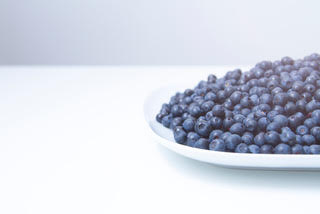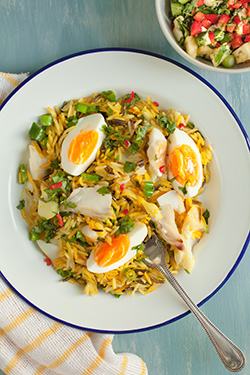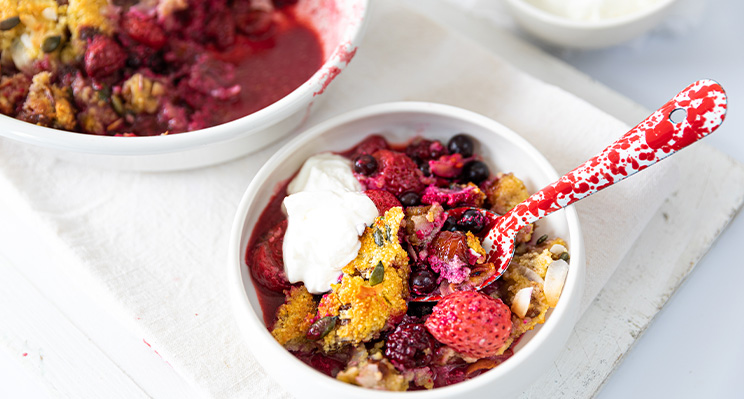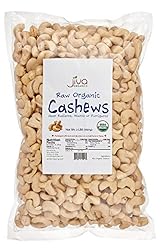Antioxidants have been a food-buzzword in the media and used as a marketing technique for several years. But what are they and how do they benefit us?

What Are Antioxidants?
Chemicals produced in the body called free radicals are a constant threat to cells; at very high levels free radicals can damage cells and genetic material. Free radicals are formed in many ways such as when food is processed into energy, after exercise, exposure to cigarette smoke, air pollution and sunlight. An excessive amount of these chemicals can lead to oxidative stress which in turn may damage cells and lead to chronic diseases. Fortunately, the body is not helpless against free radicals; processes within the body protect us from this as well as the free radical fighters we consume in food – antioxidants.
Many different substances can act as antioxidants, however, the most familiar may be vitamin C, vitamin E, beta-carotene (red-orange pigment found in plants and fruits), selenium and manganese. Most antioxidants occur naturally and their presence in foods may prevent oxidative stress or act as a defence against environmental factors. It is important to remember that the consumption of antioxidants together with minerals, fibre, and other natural substances found in fruits, vegetables, and whole grains helps to prevent a variety of chronic diseases. Due to the unique chemical and biological properties substances and nutrients have they cannot act alone to sustain health; it is the work of the whole package which keeps us healthy.
Sources of Antioxidants
The most beneficial sources of antioxidants are plant-based foods, in particular fruits and vegetables. Try to include the following foods in your diet to boost your antioxidant content:
- Vitamin A: found in dairy products, eggs, and liver
- Vitamin C: found in berries, oranges, peppers (and most fruits and vegetables)
- Vitamin E: found in nuts and seeds, vegetable oils and green leafy vegetables such as cabbage, spinach, and kale
- Beta-carotene: yellow, orange, and green leafy fruits and vegetables (for example carrots, spinach, tomatoes, broccoli)
- Lycopene: tomatoes, watermelon, papaya
- Lutein: kale, spinach, lettuce, pistachios, eggs
- Selenium: whole grains and dairy products
- Manganese: whole grains, nuts, soybeans, rice, leafy vegetables, many spices
Health Benefits of Antioxidants
- Fights free radicals, reduces oxidative stress and protects against disease:
Consuming antioxidants can help to reduce or slow the process of free radical production and therefore, reduce the risk of oxidative stress. Oxidative stress has been linked to heart disease, cancer, arthritis, stroke, respiratory diseases, immune deficiency, Parkinson’s, and other inflammatory conditions. Studies have shown that a higher intake of antioxidant-rich fruits and vegetables has been linked to a lower risk of chronic oxidative stress-related diseases and conditions. Although this emphasises the positive impact a plant-based diet can have, it is not clear if this is due to the protective effects of antioxidants, other substances in the foodstuff, or a combination of the two. - Mental health:
There is a growing amount of research surrounding the relationship between antioxidants and mental health. For example, some researchers have proposed the possibility of reducing depression and anxiety symptoms by consuming antioxidant-rich foods. - Supports healthy ageing:
Research has suggested that eating fruits, vegetables, and whole grains (which are all rich in naturally occurring antioxidants) protects many negative afflictions associated with ageing. For example, antioxidants have protective qualities against age-related eye disease, which is the leading cause of vision loss in people aged 50+.
Effect of cooking
Cooking can negatively or positively affect antioxidants in foods. Specifically, the amount of antioxidant substance available for the body to absorb and use can be increased or decreased through cooking. For example, the antioxidant in tomatoes (lycopene) becomes more bio-available when cooked, meaning that it is easier for our bodies to process and use this nutrient.
Dietary Advice
There are no recommended daily allowance guidelines for antioxidant intake, however, a healthy balanced diet that includes a variety of vegetables, fruits, whole grains, nuts, seeds, herbs, and spices will provide plenty of these nutrients. Below are some further tips if you wish to be more antioxidant aware…
Eat colourfully: Generally, foods with vibrant colours contain a high quantity of antioxidants. Therefore, a good rule of thumb is to eat a variety of colourful foods with each meal.
Be snack savvy: Choose snacks wisely to boost your intake of antioxidants i.e., opt for dry roasted nuts, seeds, bell peppers and hummus, tomatoes, or watermelon.
Focus on green leafy vegetables: Try to incorporate leafy greens into your diet as much as possible. Leafy greens will not only boost your antioxidant intake but can also offer various health benefits including reduced risk of obesity, heart disease, high blood pressure.
Antioxidant Supplements
Research exploring the benefits of antioxidant supplements has been inconclusive; there has not been strong evidence to support the use of supplements to protect against disease. However, many of these studies have fundamental limitations, such as a relatively short duration time, which may skew results.
Comparatively, many studies support the effectiveness of antioxidants obtained from whole foods rather than isolated in a tablet form.
If you think you would benefit from supplements, or if you feel you can not add these foods to your diet due to your busy lifestyle, then you may want to add a supplement.
Recipes high in Antioxidants
The recipes below is a great way to boost the antioxidant content of your diet.
The recipes below is a great way to boost the antioxidant content of your diet
Kedgeree with Turmeric and Coriander
Baked Mixed Berry Pudding with a Coconut and Almond Crumb topping
A few things from Susan's favorate page to help with antioxidants
Great for cooking for plant based milks or sauces
Take control of your menopause now!
“As an Amazon Associate, I earn from qualifying purchases.”



